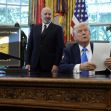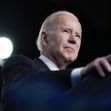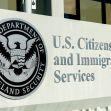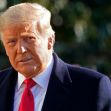Just days before President Trump is to leave office, his administration published a finalized rule amending the process by which U.S. Citizenship and Immigration Services (USCIS) selects applicants for H-1B visas. In one of the final attempts to leave the administration’s lasting mark on the U.S. immigration system, the new rule now prioritizes immigrants by earned or proffered wage rather than selecting applicants by a lottery system.
The H-1B visa program is a class of visas available to U.S. employers to temporarily hire foreign workers for highly specialized jobs. Professions eligible to hire through the H-1B visa program are certain specialty occupations, services related to research and development programs with the U.S. Department of Defense, or services “of distinguished merit and ability” in the fashion modeling industry. Specialty occupations include architecture, engineering, accounting, law, and medicine.
Foreign workers who receive an H-1B visa are permitted to live and work in the United States for a maximum of six years. After those six years, a foreign worker must either adjust status to a different visa class, if eligible, or leave the United States. However, foreign workers who were outside of the United States for at least one year may be eligible for a new six-year period. This class of visas is not an immigrant visa and therefore does not have a pathway to citizenship.
In 1990, with the start of the program, Congress capped the number of H-1B visas issued to 65,000 for every fiscal year, with an additional 20,000 for petitioners with advanced degrees. This quota is known as the H-1B cap. Individuals must have at least a bachelor’s degree or equivalent in their area of specialized knowledge to qualify for the 65,000 available visas per fiscal year. To qualify for the additional 20,000 H-1B visas for those with advanced degrees, an individual must have a U.S.-recognized master’s degree or higher in their field of expertise.
Currently, petitioners for H-1B visas are selected in a random lottery. All petitioners are required to file an electronic application. If selected from that initial petition, they are allowed to apply for an H-1B cap-subject petition. During filing, the selection process is completely computer-automated and does not take into account information such as salary.
The finalized rule will revamp this program by prioritizing workers who earn higher wages or are offered jobs with higher wages to be granted H-1B visas. The Occupational Employment Statistics (OES) is developed by the Department of Labor and categorizes wages into four tiers ranging from Level, I equivalent to entry-level, to Level IV, equivalent to fully competent. This new system will rank individuals by their proffered wage, the wage that the employer intends to pay the individual, and by geographic location. Those with a proffered wage of Level IV will be selected first, and selections will continue in descending order afterward.
The demand for H-1B visas has exceeded the allotted total of 85,000 visas every year since Fiscal Year 2014. Since 1998, the Department of Homeland Security U.S. Citizenship and Immigration Services (USCIS) is required to annually report to congress the characteristics of applicants for H-1B visas. For the fiscal year 2019, the most recent report completed found that the median salary for approved applicants was $98,000. The overall number of petitions filed increased by 0.4% in 2019, equaling 429,549 petitions. In that same fiscal year, 54% held a master’s degree, 8% a doctorate, and 3% held a professional degree.
Individuals born in India, China, Canada, South Korea, and Mexico receive the most H-1B visas. In the fiscal year, 2019 India received more than double initial employment approvals for H-1B visas than the next highest country recipient, China. More than half of all H-1B visas are issued to India.
In the fiscal year 2019, computer-related occupations accounted for 66.1% of H-1B petitions approved. The median income for computer-related occupations in 2019 was $102,000. The lowest median income reported was $48,000 in the Occupations in Entertainment and Recreation, while the highest was in Sale Promotion Occupations with a median of $204,000.
This new rule is a continuation of the Trump administration’s goal to “Buy American, Hire American,” which the administration first vocalized in executive orders during his first year in office. Trump and his administration commonly stated that they wanted to see “the best and brightest workers” come to the United States to work. This policy is just one of many that the administration has enacted.
USCIS Deputy Director for Policy, Joseph Edlow, justified this change in the policy stating, “the H-1B temporary visa program has been exploited and abused by employers primarily seeking to fill entry-level positions and reduce overall business costs.” Furthermore, the current process “makes it difficult for businesses to plan their hiring, fails to leverage the program to compete for the best and brightest international workforce, and has predominantly resulted in the annual influx of foreign labor placed in low-wage positions at the expense of U.S. workers.”
Furthermore, the Department of Homeland Security aims to “incentivize H-1B employers to offer higher wages… to increase the likelihood of selection and eligibility to file an H-1B cap-subject petition.” Some companies have voiced that this incentive works against U.S.-based employers because it makes foreign workers even more expensive, leading to less certainty in obtaining foreign workers through the H-1B program.






